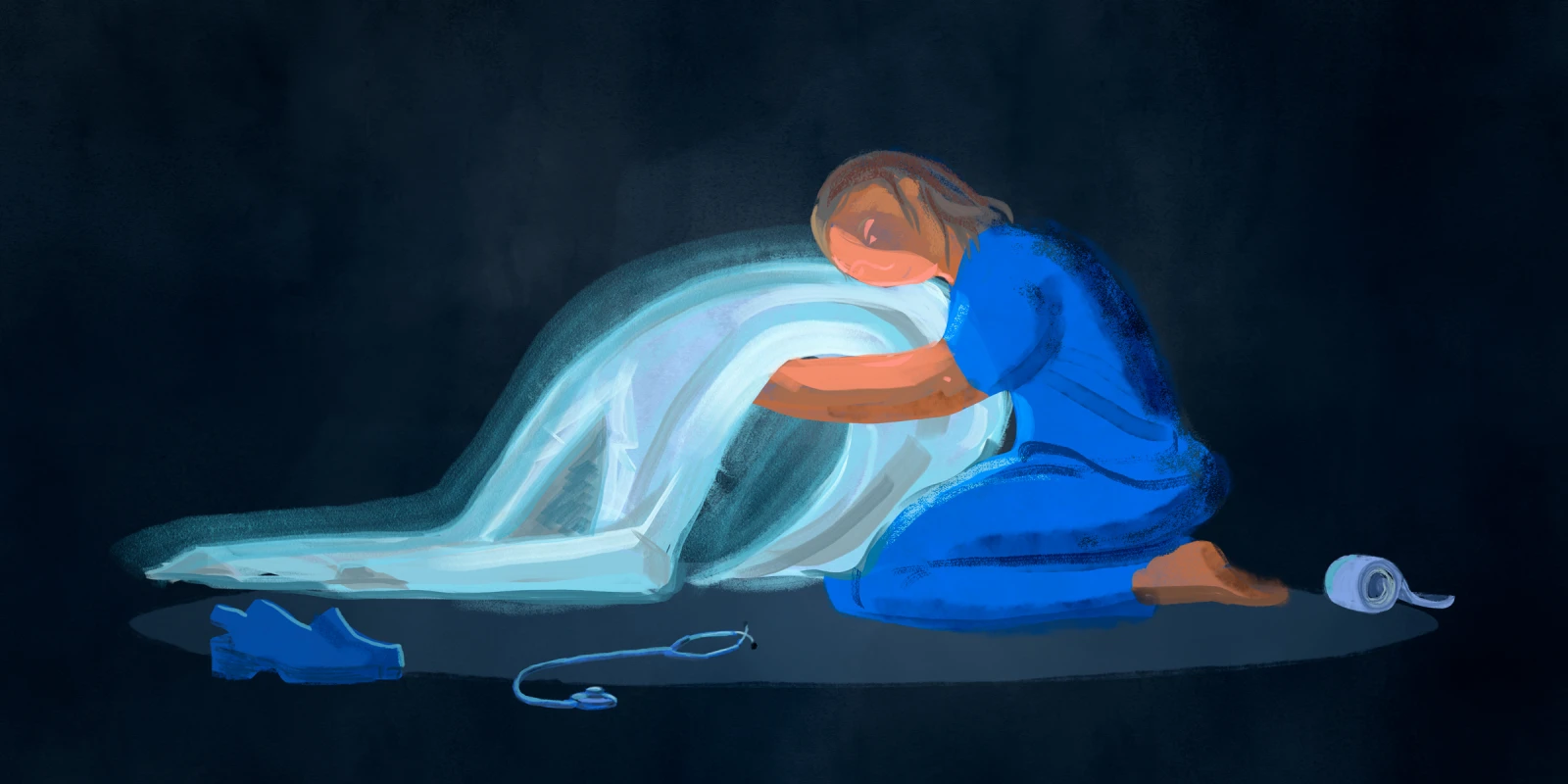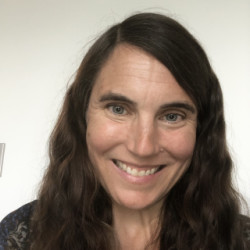Ob/gyn for me was a love match. There was no list of pros and cons to carefully consider. It was the mid-90s, a time recent enough to forget how different things were. Being in a group of women who ran the show, were smart, skilled, daring, and still compared lipstick blends on the way to grand rounds felt revolutionary. From my first rotation, I knew I had found my people and my calling. The first birth I attended independently was in a clinic along the Rio Dulce in Guatemala during my fourth year away rotation. Naturally, all went well, the patient left quickly afterward assuring me she was OK, and I went for a swim at sunrise in a river where phosphorescence can cloak manatees in heavenly sparkles.
This is all to say that my relationship with my career started at lofty heights. It’s not hard to envision that there would eventually be a fall. And yet I got through residency pre-80-hour work week limit pretty much intact. There were tears, yes, and dark times when I might have fantasized about accidents or injuries, small ones only, that would lead to just a little more rest. Despite this, I still felt called to this noble profession, which meets people at some of the most vulnerable and pivotal times of their lives.
Fast forward 20 years later to me diligently filling out mandatory well-being surveys that evaluate my risk for the dreaded condition we call burnout. Slowly and yet all at once, I knew the burnout specter had come for me. Questions about how often “I come to work feeling like I am bursting with energy” were no longer necessary. (That one has always intrigued me — is this a burnout survey or a pre-antidepressant mania screen?) How I knew was simple: Instead of feeling called to do what I do, I felt like I had been cruelly tricked — tricked into joining a life that was physically and emotionally destroying me.
How I sank from A to B is, as we say, multifactorial. A lot of it was COVID-19. My husband and I are both doctors. He is in infectious disease. We have three children and, irresponsibly, shamefully, no will. I remember thinking this virus could orphan them. And I remember watching my neighbors, who are nonclinical doctors, peacefully walk their dog together. The bitterness began to creep in. Boston is full of doctors. You frequently overhear clinical conundrums and medical frustrations while stopped at a light during a run. It is also full of nonclinical doctors and, as I imagined their comfortable safety, it filled my heart with rage. I watched my nonphysician friends work from home as we continued going in amid all the awfulness of that early time. I began to realize there were easier ways to earn a living.
Although the suffering of COVID-19 was shared unequally in ways that are far more egregious than my private angst, the suffering was still shared, and this brought some comfort. For me, privately, the COVID-19 pandemic came on the heels of the hardest month of my career, when three patient cases shook me in lasting ways. Two occurred within 48 hours of each other, and the third, fulfilling the mythology of bad things coming in threes, happened about 10 days later. In addition, and perhaps most importantly, I learned a lesson that many others know but are unable to talk about, that the fastest and most lasting route to burnout often involves a medicolegal experience.
A job that creates some of the most painful moments of your life better be more than a job. When your sense of calling crumbles, it’s easy to question your life choices. “You knew what you were getting into” rings hollow and cruel. No one is ever told and, if they were, they wouldn’t understand how many times and in how many different ways you can be broken while on this journey.
So what to do next? The quilt of the health care worker burnout crisis is sewn together with individual stories like mine. Health care burnout is one of the many problems we want to disappear, without necessarily putting in the effort to solve it. What’s more, some of the proposed approaches seem self-serving for the organizations that employ us, focusing on keeping workers just happy enough so we continue to churn through patients full-time with good enough patient satisfaction scores until we retire.
The most severe consequences of burnout — medical errors, depression, substance abuse, and suicide — are clearly public and private health threats. But can we consider that what we call burnout might sometimes be helpful, at least when it exists in a milder form? We could start by reexamining the term itself, acknowledging that we have unquestioningly adopted a term that initially emerged in pop culture to describe the effects of chronic drug abuse. By describing our moments of exhaustion, questioning, and disillusionment with a term that implies an unredeemable state, we cede the chance for any positive transformation. After all, if we're burned out, we can’t be rekindled.
Disillusionment can bring questioning and examination, which can lead to change, seeking new opportunities, and a new vision of self. Our emerging COVID-19 narrative is full of these transformations — leaving a grueling business to start an organic coffee farm, etc. Maybe we’re not meant to keep doing the same job in the same way for all these years, especially when it can be so anguishing.
In my case, I am still here. Although I did inquire about starting a Playa Bowl franchise (a very expensive endeavor!), there has been no rom-com worthy transformation. Like most of us, I don’t have the answers in general and barely have them for myself. I know, though, that in one of the moments of near despair, I said yes to an opportunity for a side gig that in the past I would have dismissed because, as always, I was too busy. Feeling so lost made me know I needed something else. Feeling so desperate for something else gave me courage to try a new challenge.
I began writing and doing medical reviews for a health app. Seeing patient care from this angle was exciting and validating. It turns out those nonclinical jobs give you lots of positive reinforcement, something that can be glaringly absent in clinical care. Writing for patients improved my ability to communicate and I gained a better understanding of the real questions people experience. And so I began the journey back. There was still a spark after all; it was just buried — really deep down.
I can’t deny that I still feel tricked at times, but fortunately, I also still feel called. The calling isn’t as clear and pink as it may have appeared on the river at dawn when I attended my first birth. It now has lots of cracks, warts, and scars. When I was on the Rio Dulce all those years ago, I only saw the twinkling shadow of the manatee as it passed near our canoe. Years later in Florida, with my parents, husband, and children, I was lucky enough to see manatees again. When you see these amazing creatures up close and not just their sparkling outline, you see that they, like our lives, are also covered with cracks, warts, and scars.
How has your perception of a career in medicine evolved over time? Share your thoughts in the comment section.
Dr. Jennifer Boyle is an ob/gyn in Boston, MA. She also works as a soccer coach and a cheer, hockey, and lacrosse mom. To stay sane, she runs, reads and bonds with her fourth baby, a labradoodle named Teddie. Dr. Boyle was a 2022-2023 Doximity Op-Med Fellow, and is a 2023-2024 Doximity Op-Med Fellow.
Illustration by Jennifer Bogartz







